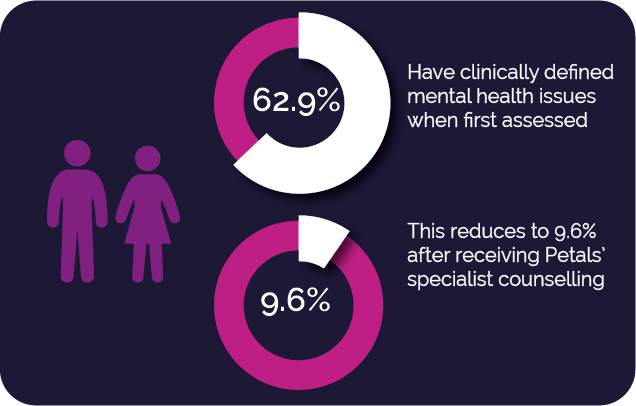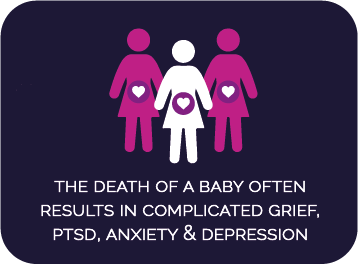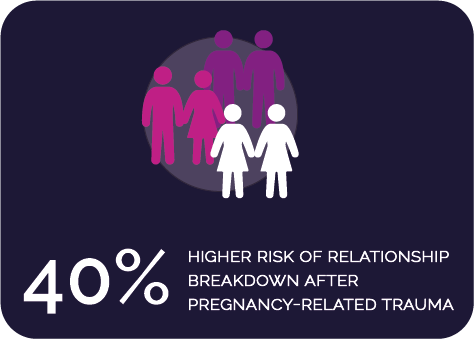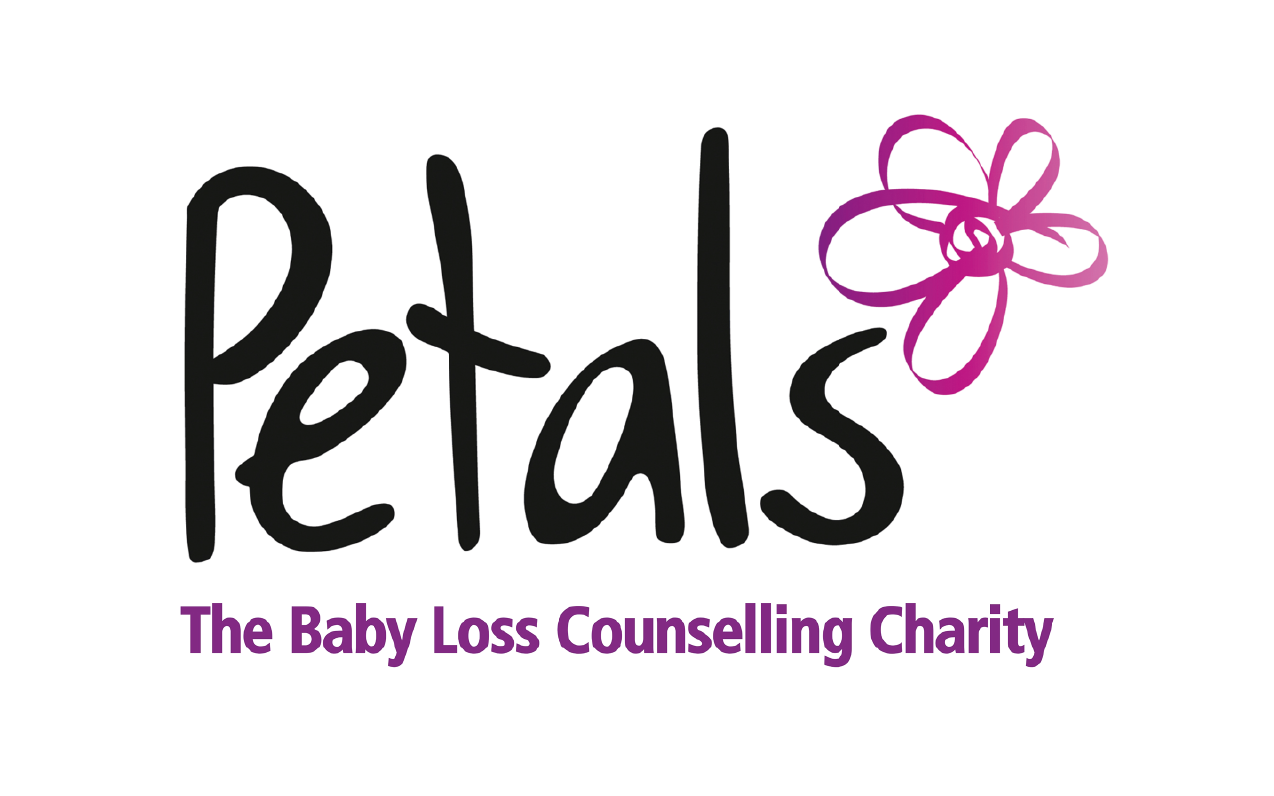our impact
Petals specialises in supporting parents who experience mental health issues as a result of bereavement, trauma or loss related to pregnancy including miscarriage, stillbirth, termination for medical reasons (TFMR) and neonatal loss.
Since the launch of the counselling service in Cambridge in 2013, over 7,100 people have benefitted from our specialist support and we are now delivering 500 counselling sessions every month.

As well as delivering the service, we routinely collect data regarding the outcomes of our counselling from the client’s perspective as well as offering the opportunity for them to provide an anonymous evaluation of their experience. We are using this to develop an evidence base for our work and contribute to the wider field of research in this area.

As well as delivering the service, we routinely collect data regarding the outcomes of our counselling from the client’s perspective as well as offering the opportunity for them to provide an anonymous evaluation of their experience. We are using this to develop an evidence base for our work and contribute to the wider field of research in this area.
A recent study of our counselling work across 280 client cases using the CORE psychological assessment tool (Clinical Outcomes in Routine Evaluation Information Management System; CORE IMS) evidenced that 184 of those clients started Petals’ counselling showing clinical levels of distress (Post-traumatic stress disorder (PTSD), anxiety or depression). On completion of their six Petals counselling sessions, this reduced to only 27 of the 280 still showed clinical levels of distress. Many of these 27 already had long term mental health issues.


In a survey conducted in early 2019, 96% of clients said they would recommend Petals to a friend or family member should they also experience the loss of a baby.

Specialist psychological care related to pregnancy loss is not available on the NHS even though stillbirth & neonatal death affects 12,400 parents each year and represents 2% of pregnancies. Miscarriage is said to occur in 25% of all pregnancies.
Research has shown that pregnancy-related trauma is frequently devastating for couples. The lack of acknowledgement within the healthcare pathway effectively abandons patients to cope with complex grief unsupported and isolated, in a society where these issues remain poorly understood.
Unresolved distress manifests in different ways, commonly as anxiety disorders, postnatal depression or PTSD. Documented consequences also include increased rates of hospital admission, increased use of alcohol, a 40% increase in marital breakdown and psychological impact on existing children. Although grief is a normal and natural response to loss, the importance of providing quality care at this time has been repeatedly demonstrated.


